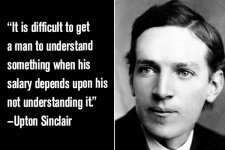JohnEngelman
Virgin
- Joined
- Jan 8, 2022
- Posts
- 5,412
What matters is that what I posted is true.IOW, you let AI do it for you.
You claimed that the New Deal deepened and prolonged the Great Depression. I pointed out that life for most Americans began to improve almost as soon as Roosevelt was inaugurated. They were more likely to have a job. They benefitted from growth in the per capital gross domestic product. They also benefitted from New Deal reforms, like Social Security, the minimum wage, and laws to protect labor unions.
These benefits are why Roosevelt was reelected three times.
